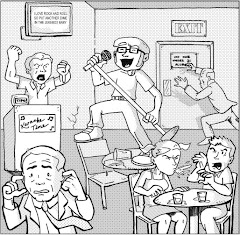Anubis #1, July 1995, SCC Entertainment
by Scott Berwanger
Have you ever watched a television show, seen a movie, or read a book that consumed a significant amount of time, only to realize when the experience was over that you could easily sum up said experience in a simple sentence? I felt that way this past Monday with the Prison Break midseason premiere; after several episodes’ worth of arduous planning, our heroes’ plight seemingly took a turn for the worse when a new warden captured the craftily tattooed Michael and isolated him in an apparently plastic-wrapped hot box. In the premiere, though, things briefly turned in his favor, as the warden attempted to single-handedly solve the mystery of Lincoln’s framing, L.J.’s abduction, and Whistler’s breakout. Of course, as the only one that could vouch for Michael’s story, the warden dies, just like the dozens of comic book characters that discovered the hero’s secret identity a few fatal moments too late.
It wasn’t the waste of an episode that got me, though. It was the series’ writers brazen summation of their entire two and a half seasons to date -- some fifty episodes -- in Michael’s succinct plea to the warden. To paraphrase: “Listen, man, a shadow government framed my brother so I would develop the skills to break him out of jail; now that I have, they’ve stuck me in this impenetrable Panama prison to break out one of their men.” Well, that takes the breath right out of my three year commitment! I could’ve jumped in just last Monday and spared myself many weeks of nail-biting suspense.
I know. Getting there is all the fun. But you know what I mean.
I felt much the same way after reading Anubis, a mid-‘90s independent venture by Scott Berwanger and SCC Entertainment. From his first splash page, I was taken by his intricate art style and strategic use of ink and shadow. From his first verbose series of narrative captions, I could tell that Berwanger was trying to establish a grandiose world of medieval fantasy, one that preserved its protagonists’ sense of pride and nobility as much as it fostered the spoils and innocence of youth. Imminent conflict was gracefully established as a warring force loomed just over the hill, a threat that became as palpable to the comic’s readers as its characters. Though this first chapter was a meager fifteen pages, I felt it did just what was needed to rope me in to a dynamic story . . .
. . . until Berwanger clearly explained that Anubis was his first creative foray into comics, and that, as good as he is in issue one, he’s bound to get better. Independent artists have often utilized the space traditionally reserved for correspondence and broken through the proverbial fourth wall to explain their “process,” undoubtedly in a promotional attempt to establish a connection with the reader or a personality to the work. Heck, I’m guilty of it, as are many creators I’ve been proud to meet in my years on the small press circuit. I like a well written supplemental essay, but the challenge of self-promotion is to remain just that side of line, lest one’s persistent plugging becomes pragmatic pride. “My comic is so awesome, and you’d be stupid not to keep reading it, so you can say you were with it from these humble beginnings!” Berwanger skated this line, and while I understand his motives, his methods pulled me out of the world he had so labored to establish.
Further, Berwanger made the claim, “The emergence of independent material in comics has probably been the single most important factor in the maturity of the art form to date.” While I might agree with him, the fact that he offers such a theory as the thesis for his inspiration and participation in the medium makes his intent suspect. Further, to play devil’s advocate, I’m sure that, for every innovation piece of independent comic book storytelling, another piece negates such advances with either shameless pandering to the past or subpar writing or artwork. In other words, how many indie ventures are simply glorified fan fiction? Is every piece of chicken scratch copied and bound at Kinko’s as valid a contribution to the comics market as Cerebus or Bone, to cite Berwanger’s examples? These questions don’t have textbook answers and can be debated ad nauseam. (Some of them are on message boards, I’m sure.) My point isn’t to prove Berwanger right or wrong, but to show that the argument really can go either way.
So, did I like Anubis? I did like it, right up to the point where I was told I should. I’m sure this wasn’t the creator’s intent, but over a decade after this issue saw its first print run, it’s the impression that I get. Fifteen pages, one sentence: A dying king bestows the care of his prince to his closest friend and most trusted associate on the eve of his death and impending war. Maybe Berwanger intended to establish this story as an allegory for the legacy of corporate comics, and its heir, the indie scene. Or, maybe, I’m too set in my ways to see it any other way. That’s a different kind of prison break completely unto itself.
Thursday, January 17, 2008
Subscribe to:
Post Comments (Atom)



1 comment:
Terrific post. Love to see more. Well done, Scott.
Post a Comment